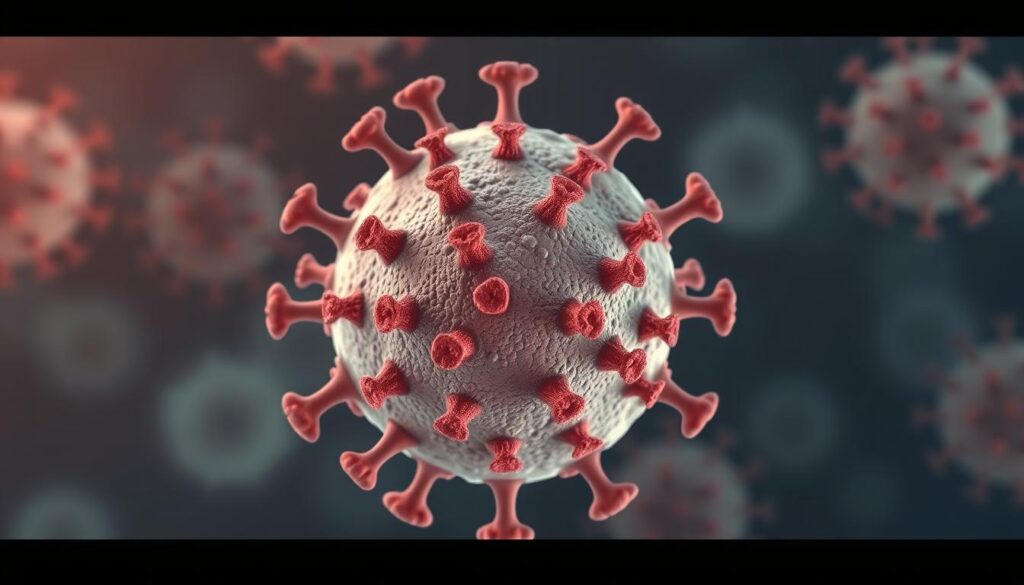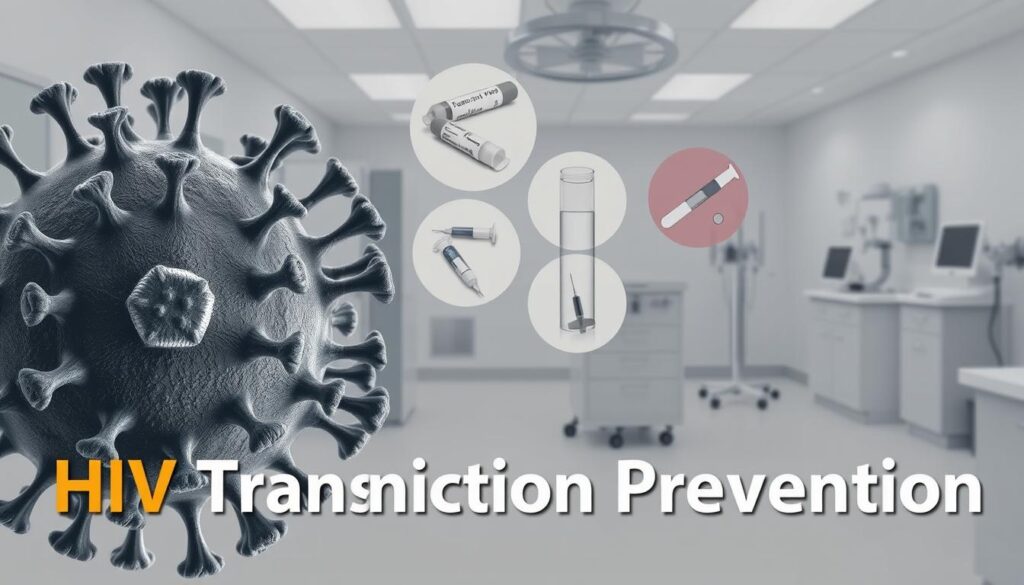
Do you know the key facts about HIV & AIDS that could save lives? In India, it’s more important than ever to understand this health issue.
This guide offers vital information on HIV & AIDS, covering prevention, testing, and treatment. Our aim is to give you accurate, life-changing facts about this major global health problem.
We’ll explore how to prevent HIV and look at the latest treatment options. Knowing the facts is the first step to awareness. This guide is your go-to for learning about HIV & AIDS in India.
Education is our strongest weapon against HIV. By clearing up myths and sharing clear, easy-to-understand info, we can fight stigma. Together, we can support those dealing with this tough health issue.
Understanding HIV & AIDS: Basic Facts and Definitions
HIV and AIDS are major health issues affecting millions globally. It’s important to know the difference between them. They are not the same, but rather different stages of the same virus.

The Difference Between HIV and AIDS
HIV attacks the immune system. Not everyone with HIV will develop AIDS. It spreads through blood, semen, and breast milk. If not treated, HIV can turn into AIDS, the most severe stage.
- HIV weakens the immune system
- AIDS is the final stage of HIV infection
- Proper treatment can prevent HIV from developing into AIDS
How HIV Affects the Immune System
HIV targets CD4 cells, key to our immune defense. As it destroys these cells, our body’s ability to fight off infections weakens.
“HIV is not a death sentence. With proper medical care, people can live long, healthy lives.” – Dr. Anthony Fauci
Global Impact and Statistics
In India, HIV is a major health issue. The country has made progress in treating it, but challenges persist. About 2.3 million people in India live with HIV, showing the need for more awareness and treatment.
| Region | HIV Prevalence | Treatment Access |
|---|---|---|
| India | 2.3 million | 85% antiretroviral coverage |
HIV Transmission and Risk Factors

Knowing how HIV spreads is key to stopping it. It moves through certain body fluids and ways of touching. This knowledge helps lower the risk of getting infected.
The main ways HIV is passed on include:
- Unprotected sex with someone who has it
- Sharing needles or syringes that are dirty
- Getting blood from an infected donor
- From mother to child during pregnancy, birth, or breastfeeding
In India, most HIV cases come from sex. People with many partners, gay men, and sex workers face higher risks. Using condoms can greatly cut down these risks.
Blood-borne HIV can happen through:
- Dirty medical tools
- Sharing personal items like razors
- Accidental needle sticks
Important ways to prevent HIV include:
- Pre-Exposure Prophylaxis (PrEP) for those at high risk
- Getting tested for HIV regularly
- Using clean, sterile needles
- Antiretroviral therapy for those who have it
Doctors say it’s vital to teach and act on prevention. This helps lower HIV risks in communities all over India.
HIV Testing, Symptoms, and Early Detection
Knowing about hiv testing and spotting early symptoms is key to staying healthy. Finding HIV early can greatly improve treatment and life quality.
To catch HIV early, it’s important to understand testing and symptoms. People at risk should get tested regularly.
Types of HIV Tests Available
Today, there are many ways to test for HIV:
- Antibody Tests: Find HIV antibodies in blood
- Antigen/Antibody Combination Tests: Spot viral proteins and antibodies
- Rapid Diagnostic Tests: Give quick results in 20-30 minutes
- Nucleic Acid Tests: Find viral genetic material directly
Common Early Symptoms
Spotting HIV symptoms early is crucial. Some early signs include:
- Flu-like symptoms like fever and body aches
- Swollen lymph nodes
- Unexplained skin rashes
- Persistent fatigue
Note: Not everyone shows these symptoms, and they can be mistaken for other issues.
Window Period and Testing Frequency
The time it takes to get test results varies:
- Antibody Tests: 23-90 days after possible exposure
- Antigen/Antibody Tests: 18-45 days
- Nucleic Acid Tests: 10-33 days
Doctors suggest regular tests for those at risk, usually every 3-6 months.
Early detection through hiv testing can turn health challenges into manageable conditions.
Treatment Options and Living with HIV & AIDS
Modern antiretroviral therapy has changed HIV treatment a lot. It has turned a once deadly disease into a manageable condition. People in India now get advanced treatments that greatly improve their life quality and health.
Effective HIV treatment includes:
- Consistent antiretroviral therapy medication
- Regular medical monitoring
- Comprehensive healthcare support
- Lifestyle modifications
The main aim of HIV treatment is to lower viral load and stop disease progress. Antiretroviral therapy suppresses the virus, helping the immune system recover and work better. Most treatments involve taking a mix of medications every day.
Research for an HIV cure is ongoing. It looks into new methods like:
- Gene therapy techniques
- Innovative vaccine development
- Targeted immune system interventions
- Long-acting medication options
People with HIV need to focus on their overall health. This means eating well, managing stress, exercising, and going to doctor’s appointments. Support groups and counseling offer important emotional support during treatment.
“With proper treatment and care, people living with HIV can lead healthy, productive lives.” – National AIDS Research Institute, India
Conclusion
Learning about HIV & AIDS is more than just knowing the facts. It’s about working together to fight HIV stigma in India. We need to educate each other with kindness and understanding.
HIV support services are vital for care and emotional help. Groups like the National AIDS Control Organisation (NACO) and local health centers offer important help. They provide testing, counseling, and treatment, giving people the support they need.
Prevention, early detection, and acceptance are key to managing HIV. We must talk openly, break down barriers, and find reliable health info. This way, we create a supportive space for everyone.
We all must do our part to stay informed and challenge wrong ideas. By being kind and understanding, we can tackle HIV challenges in India. Education and empathy are our tools for change.
FAQ
What is the difference between HIV and AIDS?
HIV attacks the immune system. AIDS is the advanced stage of HIV infection. It happens when the immune system is severely damaged. Not everyone with HIV gets AIDS, thanks to modern treatments.
How is HIV transmitted?
HIV spreads through unprotected sex, needle sharing, and blood transfusions. It can also pass from mother to child during pregnancy or breastfeeding. But it’s not spread by casual contact like hugging or sharing utensils.
What are the early symptoms of HIV?
Early HIV symptoms include flu-like signs like fever and muscle aches. Some people might not show symptoms for years. These symptoms can be mistaken for other illnesses.
How often should I get tested for HIV?
Testing frequency varies based on risk. If you’re sexually active or have high-risk behaviors, test yearly. Your doctor might suggest more frequent tests based on your risk.
What is antiretroviral therapy (ART)?
ART is the main treatment for HIV. It uses medicines to control the virus and protect the immune system. Modern ART helps people with HIV live long, healthy lives and reduces transmission risk.
Can HIV be cured?
There’s no cure for HIV yet. But ART can manage the virus, keeping it undetectable. This allows for a healthy life. Research is ongoing for potential cures and vaccines.
How can I prevent HIV transmission?
Prevent HIV by practicing safe sex and limiting partners. Get STI tests, avoid needle sharing, and use PrEP or PEP if needed. These steps help prevent transmission.
What support services are available for people living with HIV?
Many services are available, like counseling and medical care. There are also support groups and legal help. Free or low-cost testing and treatment are common in many areas.
How does HIV affect the immune system?
HIV attacks CD4 T-cells, key for fighting infections. As these cells are destroyed, the immune system weakens. This makes the body more susceptible to infections and diseases.
How can I support someone diagnosed with HIV?
Be supportive, keep their diagnosis private, and educate yourself about HIV. Avoid stigmatizing language and encourage treatment. Offer compassion and help them find support groups and counseling.
